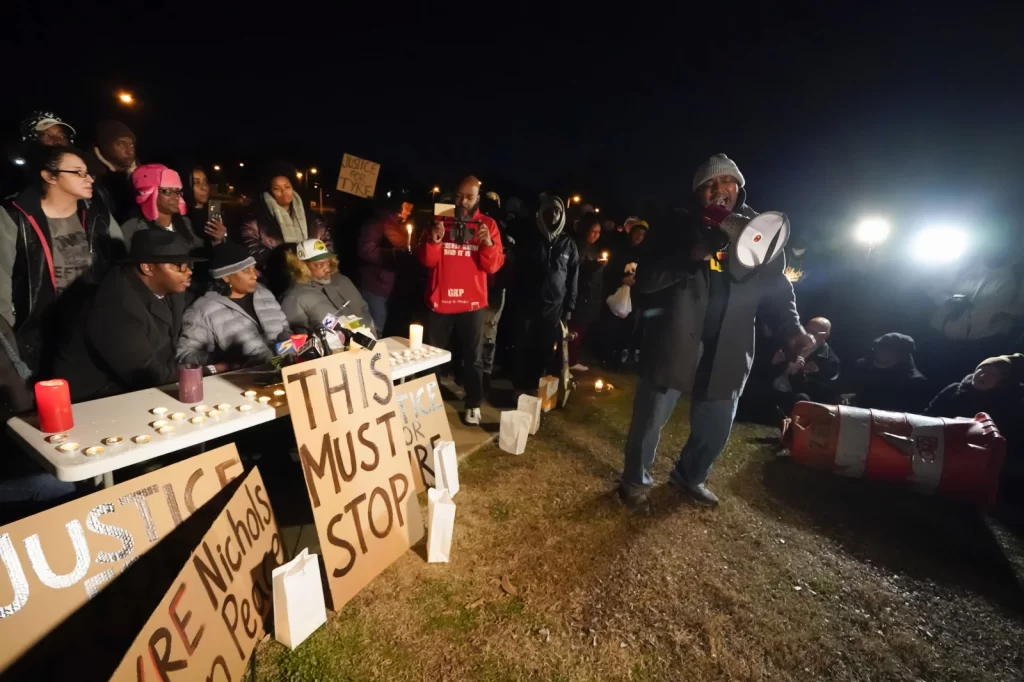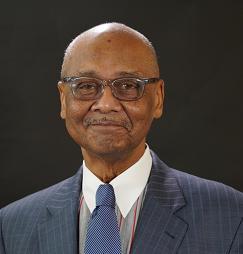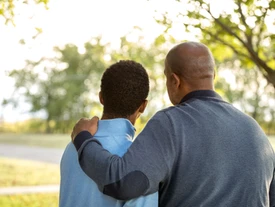The horrific killing of Tyre Nichols by five police officers presents us with a choice. We can either scapegoat all officers and blame the entire criminal justice system as racist, ignoring the moral agency of these five men, or we can realize that the problem and the solution to violence lies with us and within our communities.
If we ignore the fact that these officers committed an evil act and focus instead on “systemic racism ,” we’re missing the real crisis at hand, namely the moral and spiritual free fall of our country. The line between good and evil runs through the heart of every human being.
A year ago, we at the Woodson Center convened a group of mothers who had lost children to violence or addiction. For several gripping minutes, 18 mothers of various races and backgrounds reopened their emotional wounds and shared their heart-wrenching stories of loss.
They wept. They nodded in support of each other. They shared a deep, unshakable bond — a bond of grief carried by mothers like them who have endured unspeakable agony and have lived to tell about it.
Part of their healing process was to work for safety and peace in their neighborhoods so that other mothers would not endure the same pain. They did this through collaboration with local law enforcement in efforts to “promote positive policing” and strengthen communication between the police and community.
These mothers didn’t see race. They didn’t see class. They didn’t see any of the characteristics that far too many elites obsess over today, profiting off of identity politics that divides us all. For these precious moments, these mothers saw each other as sisters who were leaning on each other to make it through tragedy.
It’s a lesson for us all because after we watched the fatal beating of Tyre Nichols, we were rightfully outraged and debated what collective action needs to be taken to address such an abuse. What comes next is the tricky part.
As our communities are scourged by violence, addiction, despair, and polarization, do we as a country come together to bind each other’s wounds with the goals of justice and public safety in mind? Or do we listen to the grievance-mongers, the ministers of despair who angrily hurl invectives at convenient scapegoats and demand that we tear down the criminal justice system to construct something entirely new?
Some elites are once again calling to “defund the police,” even though Minneapolis essentially tried that in 2020 after the murder of George Floyd. Homicides soared, and the leaders who made this ill-advised decision did not face the consequences because they were not living in the neighborhoods hardest hit by the violence.
Every time a police killing of an unarmed man makes national news, we forget too quickly that neighborhoods across America hear gunshots every night and mothers are left to grieve an innocent victim of gang violence — and they look to the police for justice. If we took the time to listen to these innocent victims of violence, we’d hear so many of them pleading for better policing, yes, but also a strong police presence in their communities.
The crisis we’re facing today is not, at its core, a policing crisis. It’s not racial, it’s not class warfare, and it can’t just be solved with stricter gun laws. The crisis we’re facing today is a profound moral and spiritual desert spreading within communities and within our own souls.
Young people are wandering without purpose in their life. As a consequence of this emptiness, they devalue their own lives, and they’ll act by taking their own or someone else’s life.
Why else would a 6-year-old bring a gun to school and shoot his teacher? Why else would teenagers be solving trivial disputes with deadly weapons or beating elderly men to death for no reason at all?
We won’t get out of our current tailspin of violence, addiction, and despair unless we reckon with the crux of the problem — a crisis of values. The continued escalation of self-inflicted genocide is a direct result of not addressing the root of the crisis.
If we successfully reverse these deadly trends of violence and addiction, it will be because community leaders both stepped up and received support for implementing values and virtues in their own neighborhoods, choosing resilience over despair, responsibility over victimhood, charity over selfishness, and peace and justice over retaliation.
With support, these don’t have to be isolated victories. They can spread to our entire nation, now afflicted with division and despair, and renew it with hope.
Robert L. Woodson, Sr.
Robert L. Woodson, Sr. is Founder and President of the Woodson Center, 1776 Unites and Voices of Black Mothers United. He is an influential leader on issues of poverty alleviation and empowering disadvantaged communities to become agents of their own uplift. Woodson is a frequent advisor to local, state and federal government officials as well as business and philanthropic organizations.







